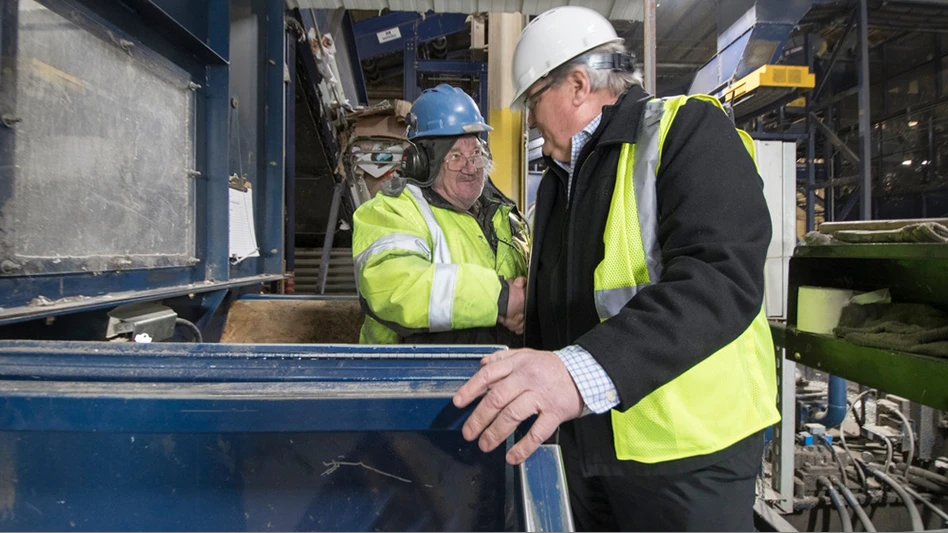
Photo courtesy of Mill Industries Inc.
Mill Industries Inc. says results from a yearlong pilot program with the city of Tacoma, Washington, show its food scrap collection and processing bins increased food scrap source separation activities in households with the bins.
Mill, based in San Bruno, California, says the increased sorting occurred both in households that had previously participated in municipal food scrap collection programs and those that had not.
The pilot program, which involved 84 Tacoma households, was announced last February and aimed to determine if access to Mill’s food recycling device could increase citizen participation in food scrap source separation efforts and reduce contamination in the food organics and dry recyclables streams.
According to Mill, participants in the Tacoma pilot source separated 10 times more food scraps than the average Tacoma household did in the same time period.
Over half of participants and follow-up survey respondents indicated they had not previously used the city’s food scraps collection service, which Mill says indicates it is improving both the quality and quantity of citizen participation in food scrap source separation efforts.
The diversion of additional food scraps contributed to numerous respondents who previously reported their garbage cart generally reached or exceeded its weekly capacity, saying that after having Mill, none reported having an overfull garbage cart.
“The diversion numbers for the Mill pilot are impressive and the technology has been generally effective in addressing the ick factor for residential customers who want to divert food waste, and have a willingness to pay for the service,” says Lewis Griffith, Solid Waste Division manager in Tacoma. “We are interested in exploring ways that this type of technology can fit into our overall menu of solid waste services.”
Mill says results from the Tacoma pilot program reinforce insights that it is increasing awareness of food waste and changing behavior in a sustained way, and presenting new opportunities for people to save money and reduce waste.
In jurisdictions where homeowners pay to dispose of municipal solid waste, the economic implications are significant. According to Mill, a Tacoma customer could save $320 downsizing the size of their garbage cart and save at least $380 annually through a 20 percent reduction in discarded food in their MSW bins.
“Participation and contamination are the Achilles’ heel of organics collection programs,” says Scott Smithline of Mill Industries, who also is a former director of the California Department of Resources Recycling and Recovery. “This data demonstrates the type of breakthrough in overcoming the ick factor that this industry has been waiting for.”
Latest from Waste Today
- Defunct electronics recycling companies ordered to pay $3M for hazardous waste violations in Ohio
- Tacoma, Washington, launches smart camera technology pilot
- Pride Disposal sees efficiency gains with Hydrotex BIO-XPL hydraulic fluid
- Techbros launches AI-integrated electronics processing facility
- Understanding interchange optimization
- Account Updater: Keeping customer credit cards always up-to-date
- Understanding credit card fees
- CDRA names new executive director





